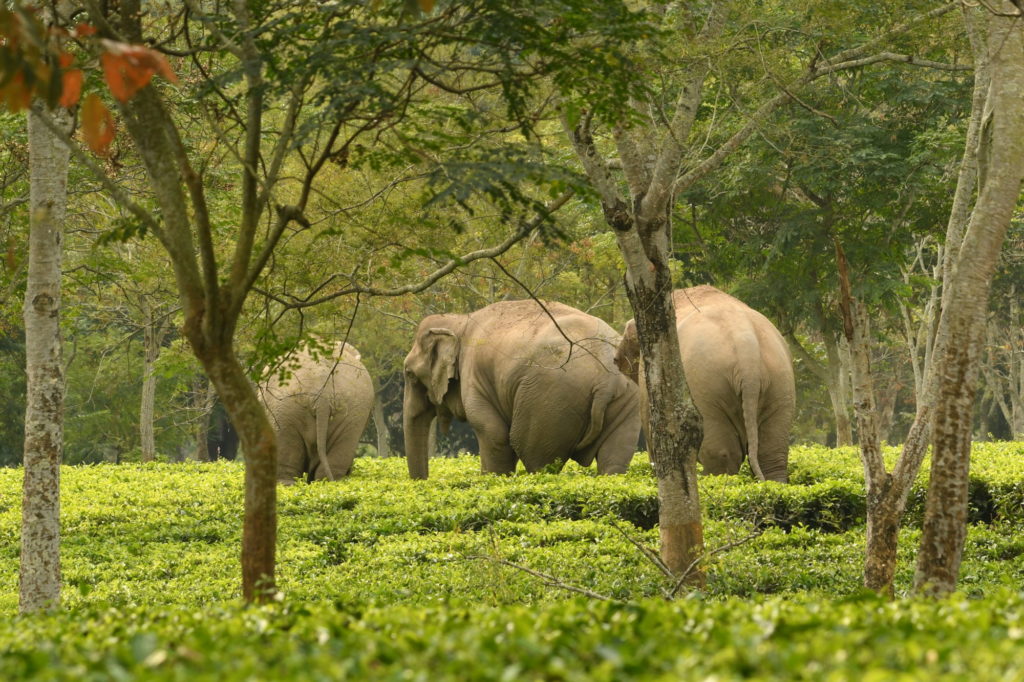Tea gardens a heaven for elephants?
Is the practice of providing shelter for elephants in tea gardens useful?
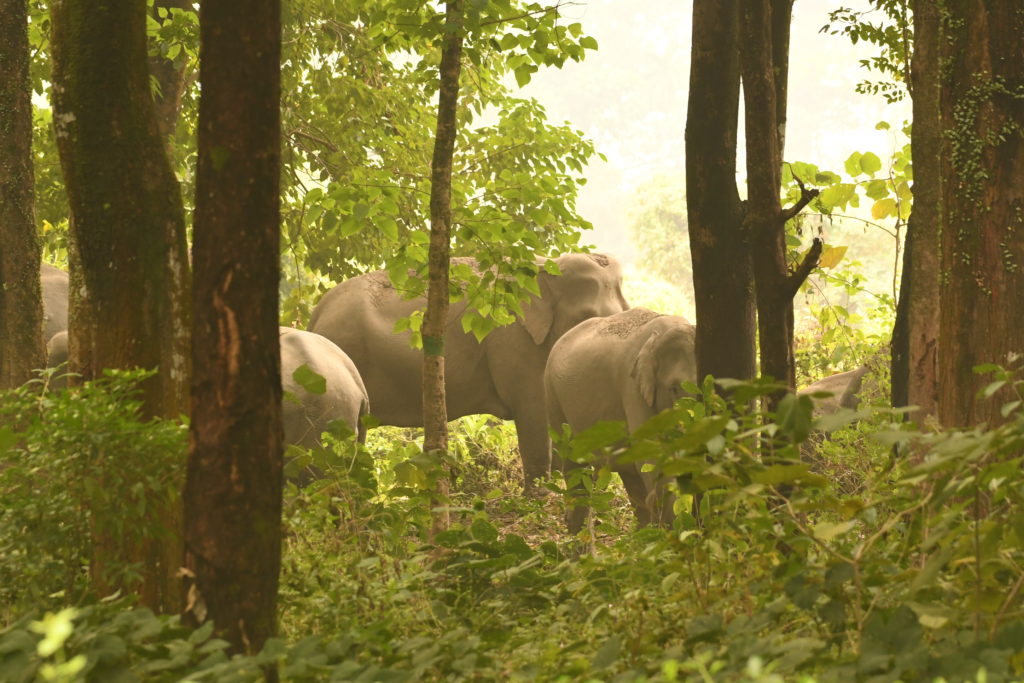
Tea gardens in India are providing day-time shelter for wild elephants by leaving
some areas to grow naturally. A nice gesture that surely shows good intention from
tea garden owners and management. Removal of some fences, trenches and other
proactive measures help create a safe zone for wild elephants. A good initiative it seems,
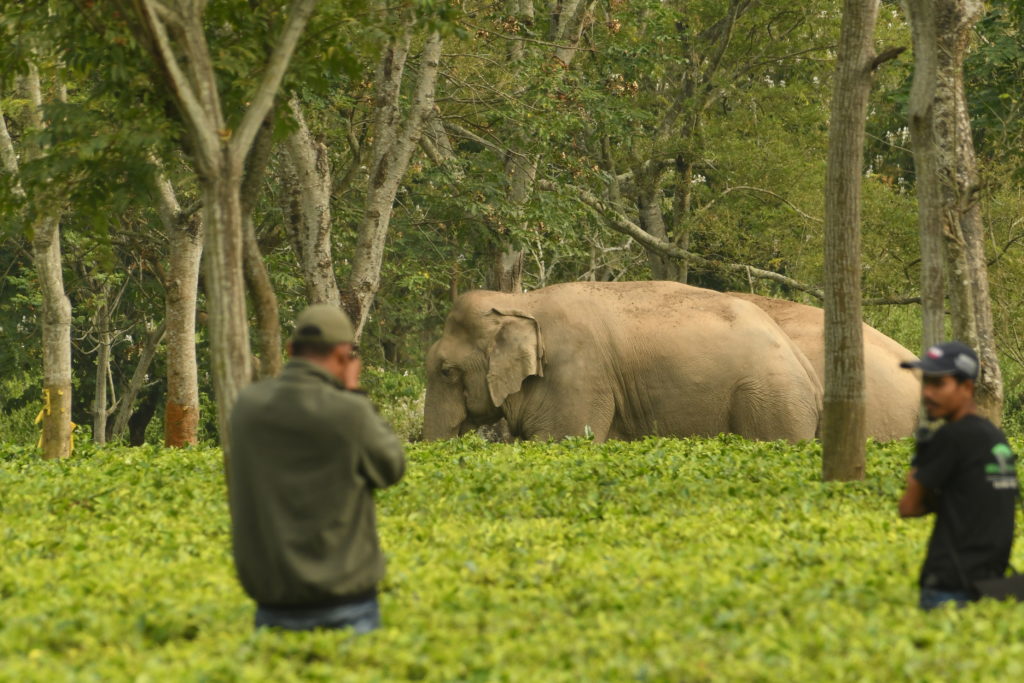 But there could be another side as well; lets have a look at the main HEC area of
But there could be another side as well; lets have a look at the main HEC area of
Udalguri district in Assam and close to the border to Bhutan.
NWA investigated the problems there and found, as expected huge problems.
Natural habitat:
almost all habitat is overgrown with alien, invasive plant species, mostly
Lantana Camera and Chromolaena Odorata at a rate of 90-95%.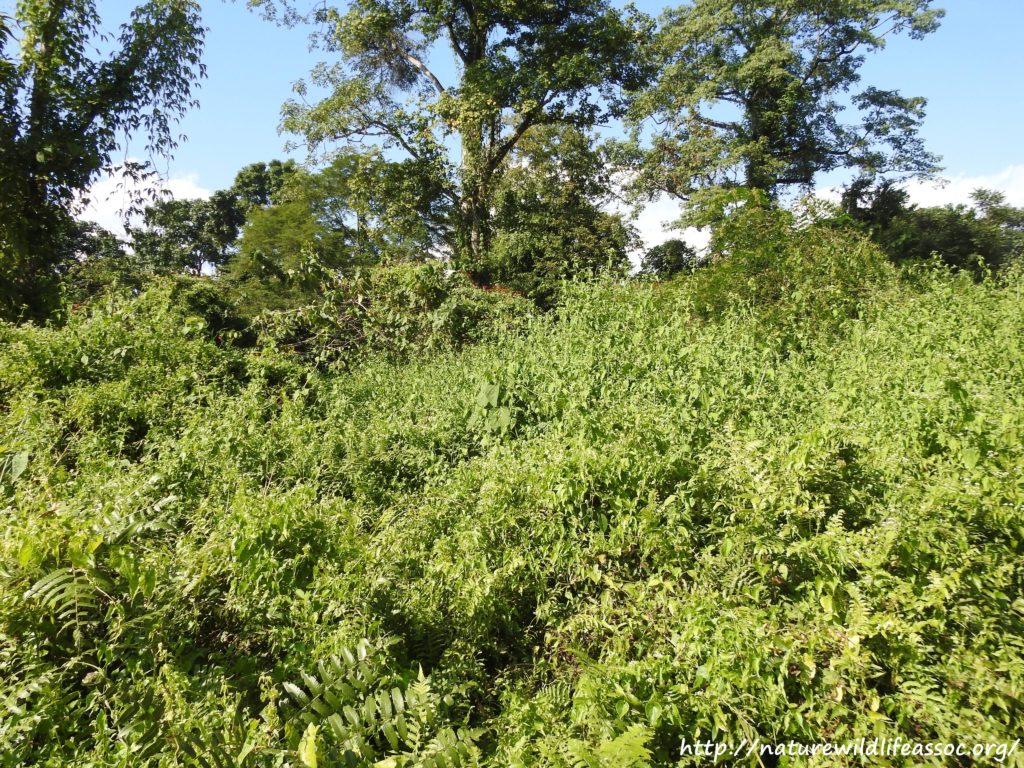
A large number of cattle is present.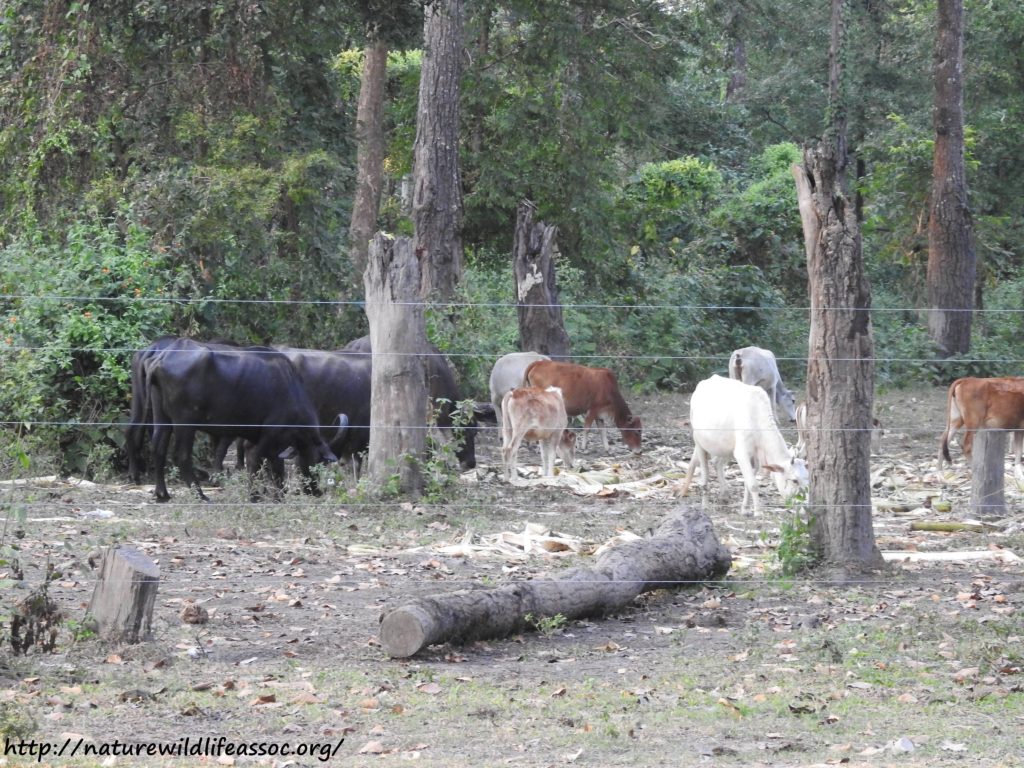
Agricultural activity:
Paddy cultivation on small plots and large tea gardens dominate.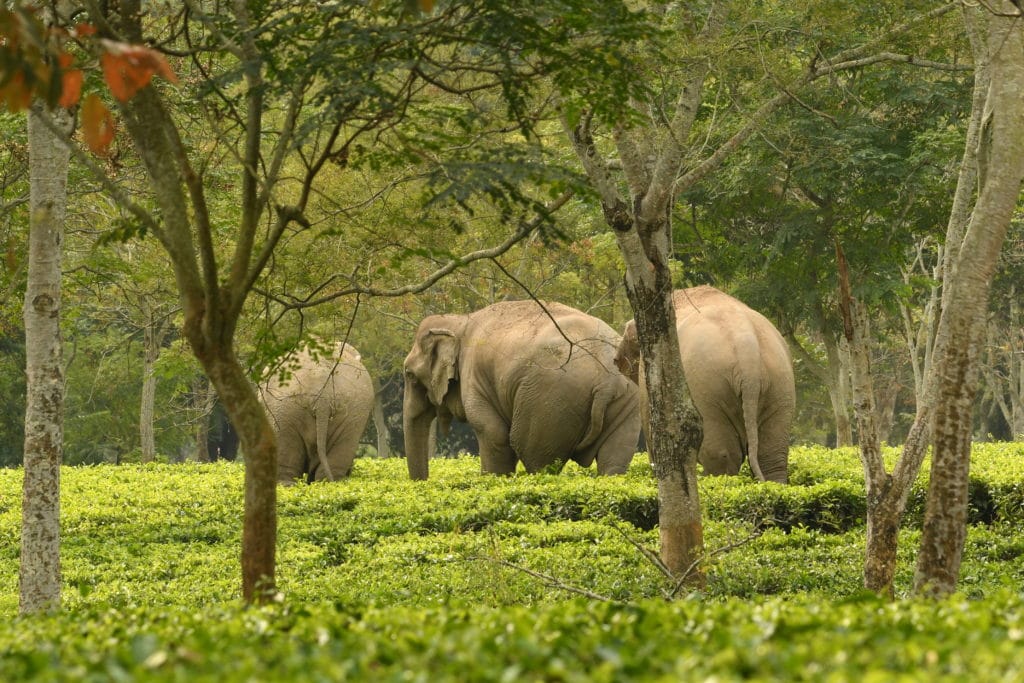
Human attitude:
Mostly positive view about elephants (Hindu believe), but the loss of lively-hood turns
people very violent during depredation.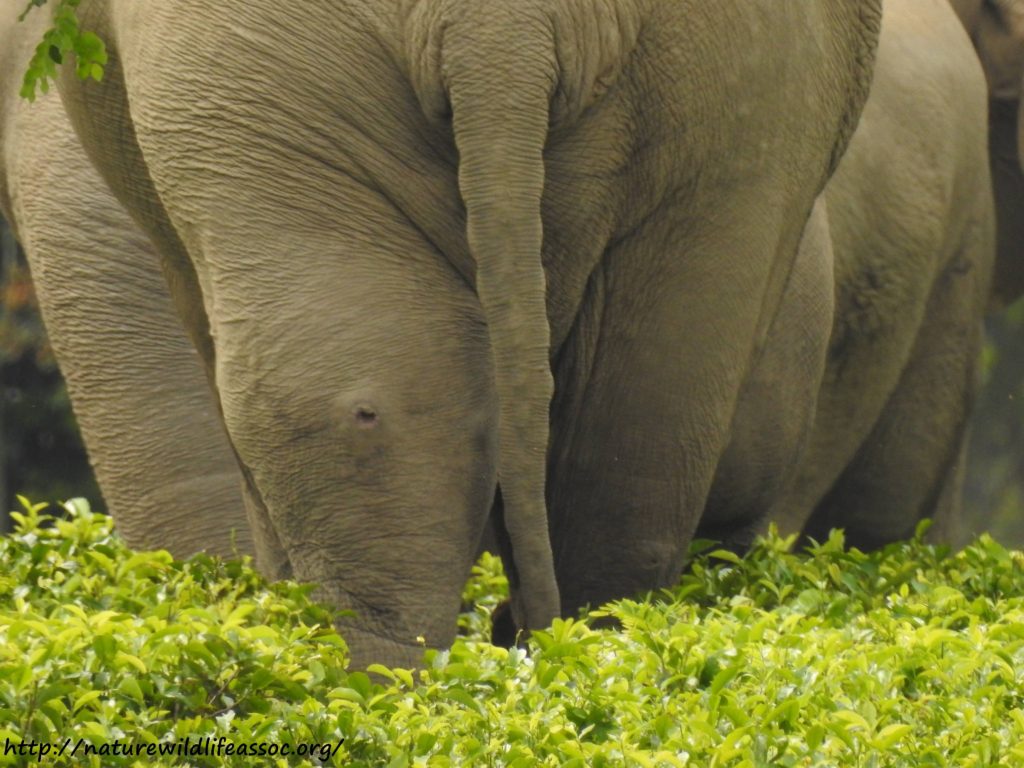
Many people try to appease elephants by offering food and salt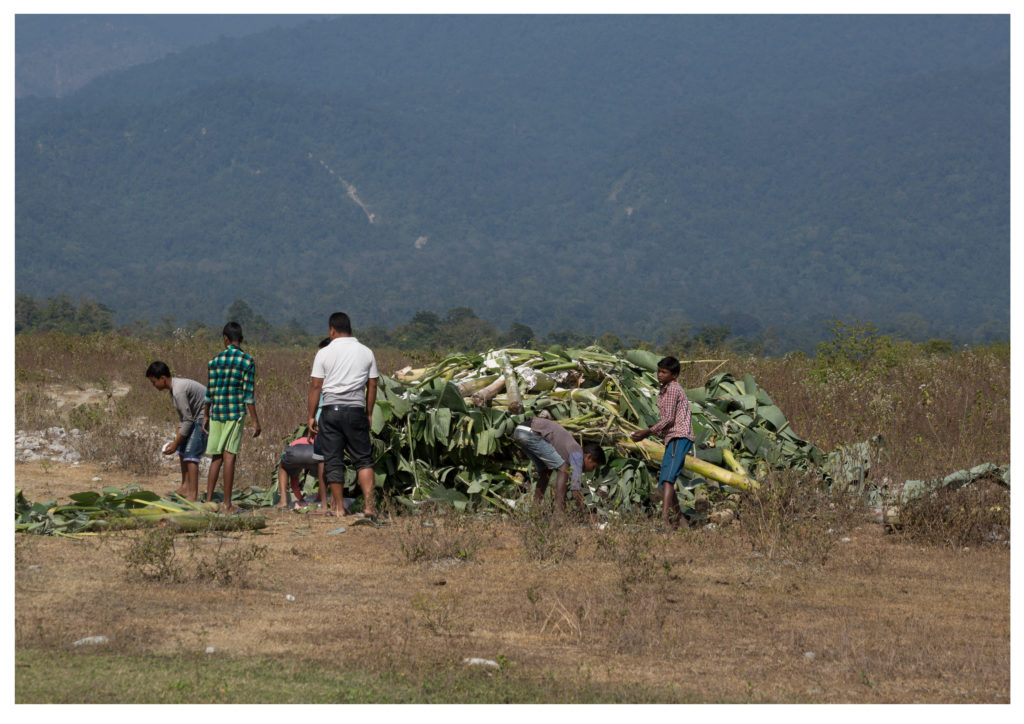
Tea garden workers engage in elephant chasing fun after work
Tea gardens provide safety for elephants.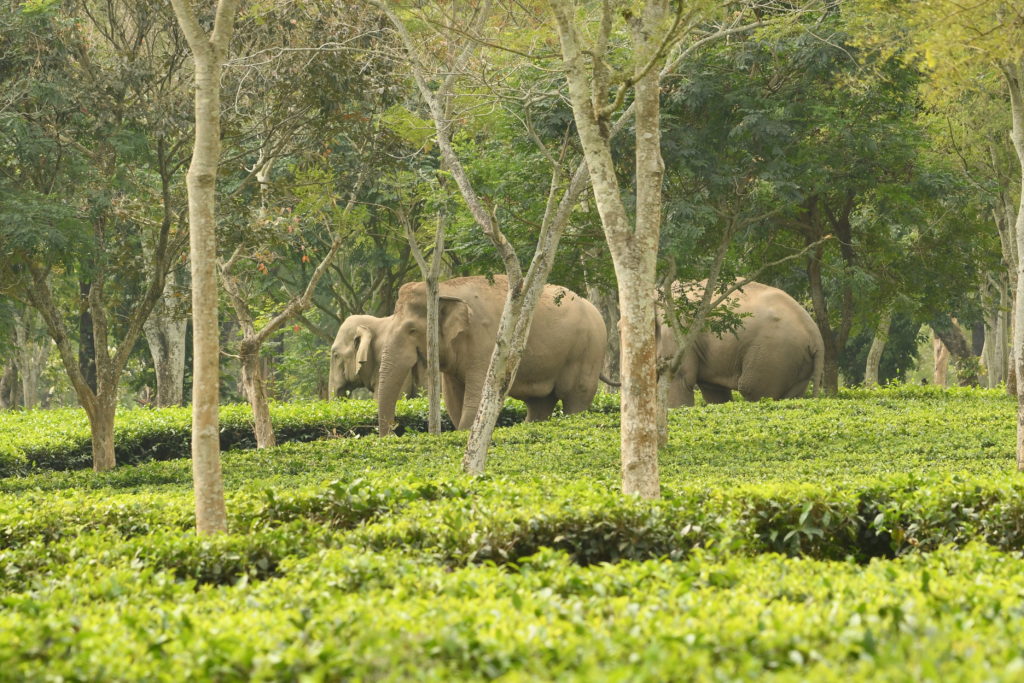
Depredation measures:
Solar fencing along the forest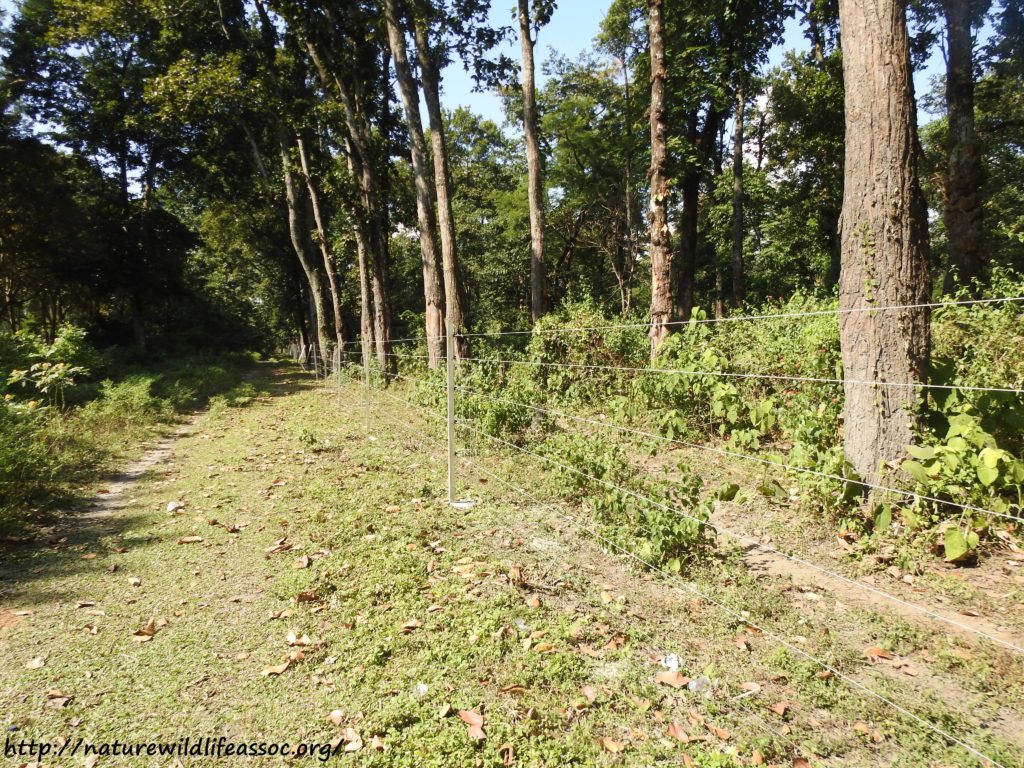
Untrained, violent and mostly alcoholised depredation teams
Other human activity:
Rock-mining in and along riverbeds is widespread.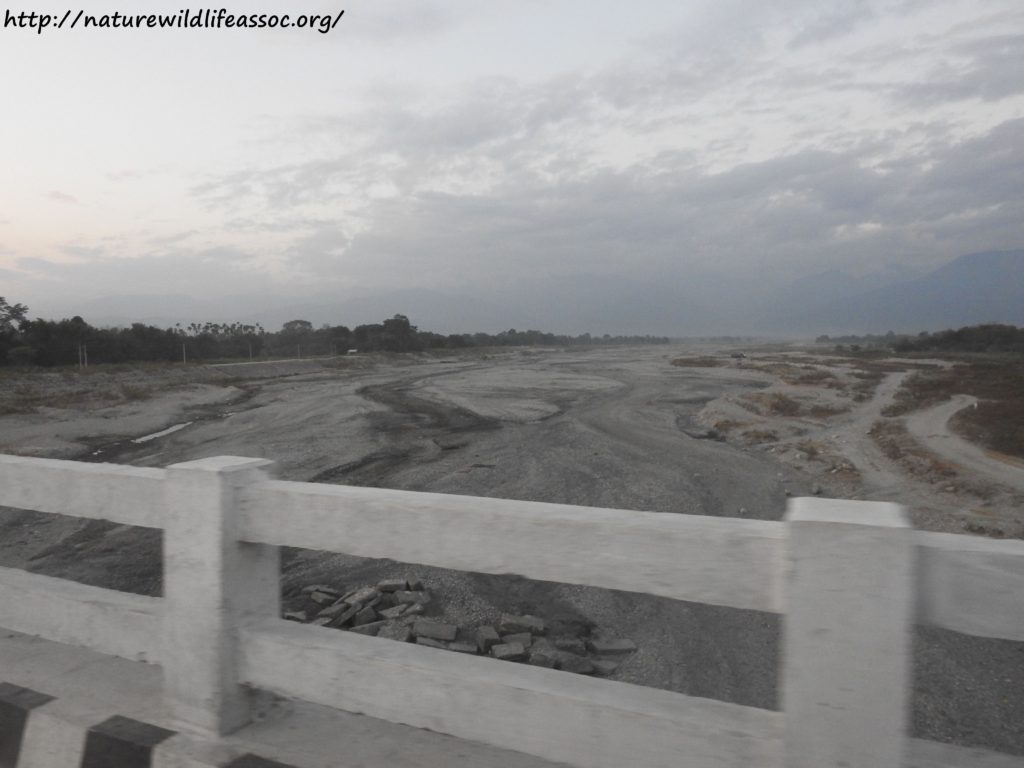
The scale of suffering in this area in Udalguri is unimaginable!
What can be done?
Considering all aspects, very aggressive depredation and elephants, practises,
that actually invite elephants into human areas, it seems that the only solution
is to separate elephants from humans, but there are many more aspects to
take into account.
Habitat has to be restored to accommodate and feed all elephants.
In order to remove the cattle from the “forest” areas, alternative food sources for
the cattle have to be created by removing invasive plants along the dry riverbeds
and in wasteland around villages.
Feeding of wild elephants has to be stopped immediately!
A separation line has to be drawn up and the solar fence has
to be adjusted accordingly.
Professionally trained and equipped depredation teams need to be formed.
The practise of providing shelter to elephants in tea gardens
should be seriously reconsidered.
Why we should take these measures?
Habitat restoration:
Elephants need sufficient food inside their habitat or they will
always come to raid the paddy fields.
Cattle removal:
As the cattle will eat the grass in the restored habitat, they have to be kept away,
there are vast areas outside that could accommodate these after improvement.
Feeding of elephants:
Inviting elephants into human areas and habituating them to
unnatural food will always invite problems.
Separation Line:
A clear demarcation line needs to be set, to created a human activity
(and cattle) free habitat for elephants.
Professional depredation teams:
To reduce casualties and incursions, a professional team, trained in non violent
mitigation, alcohol free and equipped with the necessary tools, is needed.
Tea garden shelters:
Large and small tea gardens are spread in between the paddy fields, making proper depredation
impossible as there are elephants everywhere inside the human areas and next to settlements.
It has to be noted, the the vast majority of attacks on humans are inside
or very close to these tea estates. Most elephants involved in attacks
are staying in the tea gardens during the day.
